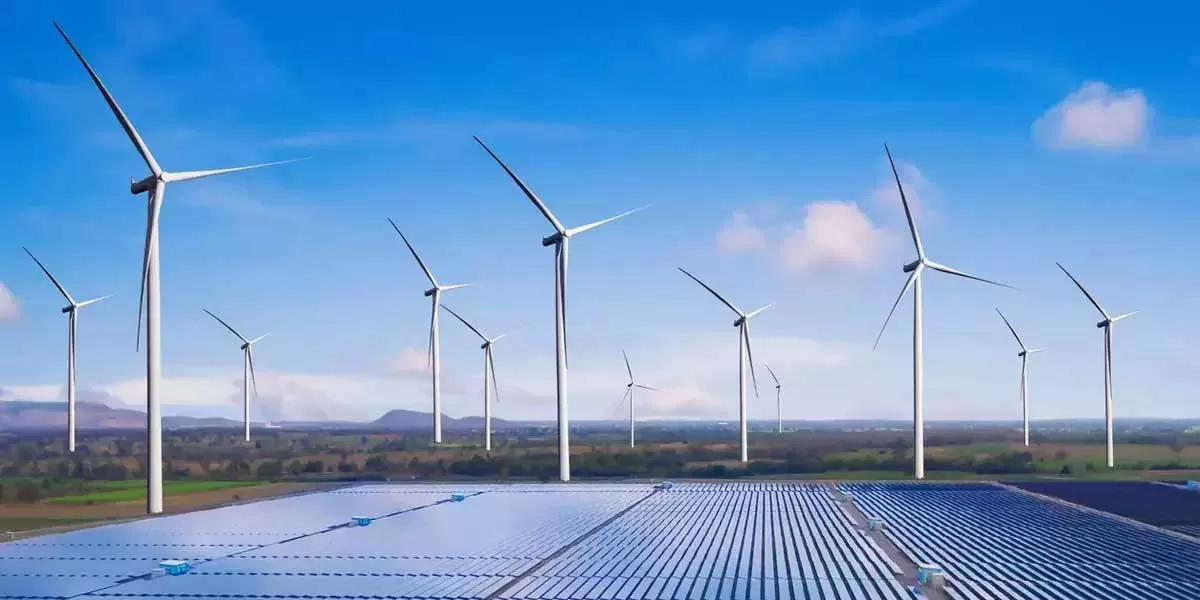India is at the forefront of the global fight against climate change, committing to ambitious targets that prioritise sustainable energy as a foundation for both environmental and economic resilience. The country's promise to cut carbon emissions by one billion tonnes by 2030 and reach net zero by 2070 highlights this dedication.
Energy consumption significantly contributes to greenhouse gas emissions, with more than 75% of India's energy still derived from fossil fuels. Without strategic changes, consumption is expected to rise rapidly due to increasing urbanisation, industrialisation, and population growth. Recognising that efficient energy use can achieve 40% of the emissions reduction goal, India is committed to doubling its rate of improvement in energy efficiency by 2030. Tracking progress is essential, given these monumental objectives.
Creating a future driven by efficient energy use requires a comprehensive approach, with states playing a crucial role. Due to unique challenges at the state level and the significant influence of sub-national entities, strong local governance and enhanced institutional capacities are vital. A data-driven approach is essential for uncovering hidden inefficiencies, understanding consumption patterns, and identifying areas with the highest potential for impact. This approach supports the development of customised energy conservation strategies and effective energy efficiency programmes.
Building a Robust Data Infrastructure
A robust data infrastructure is central to a data-driven energy strategy. This involves standardising data collection methods and investing in state-level energy databases that can precisely capture, store, and analyse energy consumption data. Without reliable and comprehensive data, planning and implementing energy efficiency strategies is challenging.
The Indian government has ramped up efforts to streamline energy data collection and analysis in recent years. The annual State Energy Efficiency Index (SEEI), developed by the Bureau of Energy Efficiency (BEE) in collaboration with the Alliance for an Energy Efficient Economy (AEEE), showcases the progress made in institutionalising data capture, monitoring, and tracking at state and local levels. Another significant initiative is the creation of the Energy Data Management Unit (EDMU) within BEE, aimed at compiling and publishing reliable data on energy supply and consumption across all sectors. Complementing this, NITI Aayog launched the India Climate and Energy Dashboard (ICED) 3.0, providing centralised access to near-real-time data on energy, climate, and economic indicators. Additionally, the updated India Energy Security Scenarios (IESS) 2047 (v3.0) considers emissions, costs, land, and water to support future planning.
These efforts form a strong foundation for informed decision-making. However, there remains a gap in capturing accurate and detailed information on end-use energy consumption, which is more challenging to obtain than supply-side data. Prioritising data on delivered energy and establishing rigorous collection processes would enable policymakers to develop targeted efficiency strategies and reduce overall consumption. Insights into final consumption patterns across sectors would also allow for more precise policy interventions.
Leveraging technology for enhanced energy management
Effective energy planning and savings require systems that measure and monitor usage at the point of consumption, ideally down to individual appliances. Technological advancements and rising demand have led to cost-effective, IoT-enabled building energy measurement systems, facilitating a data-driven approach to optimise energy efficiency. These systems track consumption and costs, providing facility managers with real-time insights to improve energy use through smarter consumption and the implementation of energy-efficient technologies and designs.
Drawing inspiration from the Haryana Renewable Energy Development Agency (HAREDA), Karnataka Renewable Energy Development Ltd. (KREDL), and Maharashtra Energy Development Agency (MEDA), which have all made significant strides in energy savings through energy-efficient architecture (green buildings) and high-efficiency appliances, state-designated agencies (SDAs) have the opportunity to lead by example in energy management. This can be achieved through the meticulous installation and operation of energy management systems, setting a standard for others to follow.


















